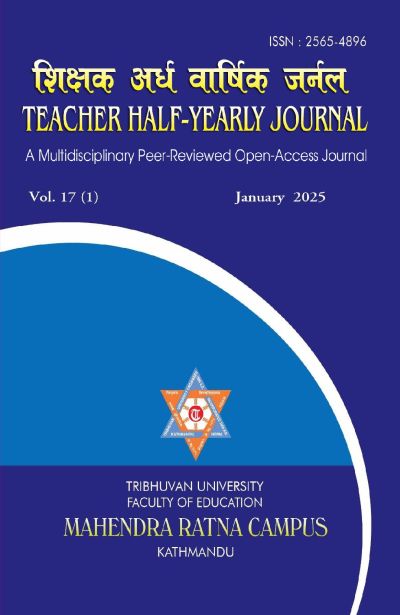Prosperity through Tradition: Traditional Skills and Level of Income Generation in Nepal
DOI:
https://doi.org/10.3126/thj.v17i1.77896Keywords:
Tranditional skills, income generation, livelihood, discrimination, inclusionAbstract
This study has attempted to explore how traditional skills, such as pottery, agriculture, and other caste/ethnicity-based practices, contribute to the livelihoods and income generation of individuals and communities in Nepal. The study has employed mixed-methods approach. Quantitative data was collected from the sampled population of 500 respondents, carefully and purposively selected with equal representation from five different groups—Kami, Damai, Sarki, Kumhale, and others—each comprising 100, by using a questionnaire. After analysing it, qualitative data was collected through in-depth interviews with society stakeholders as ward chairs, ward members, teachers, professors and social activists in Dang Valley. The results offer mixed responses regarding the research issues. When asked about the use of leisure and sustainable source of income, the respondents were significantly positive and agreed with the issues. Regarding social identity of the people with traditional skills, the respondents had been experiencing social discrimination and unhealthy social response. The qualitative results present that traditional skills can be the perspective solution to unemployment. There is the need of preservation and promotion of such skills through inspiration, motivation and education at individual level, awareness and social inclusion at community level and favourable environments and effective policy initiatives at government level efforts so as to retain youth population within the country. While reviewing existing stock of literature in this field, it suggests that future research must explore how gender norms affect traditional skills practiced by men and women within different caste/ethnic groups.




